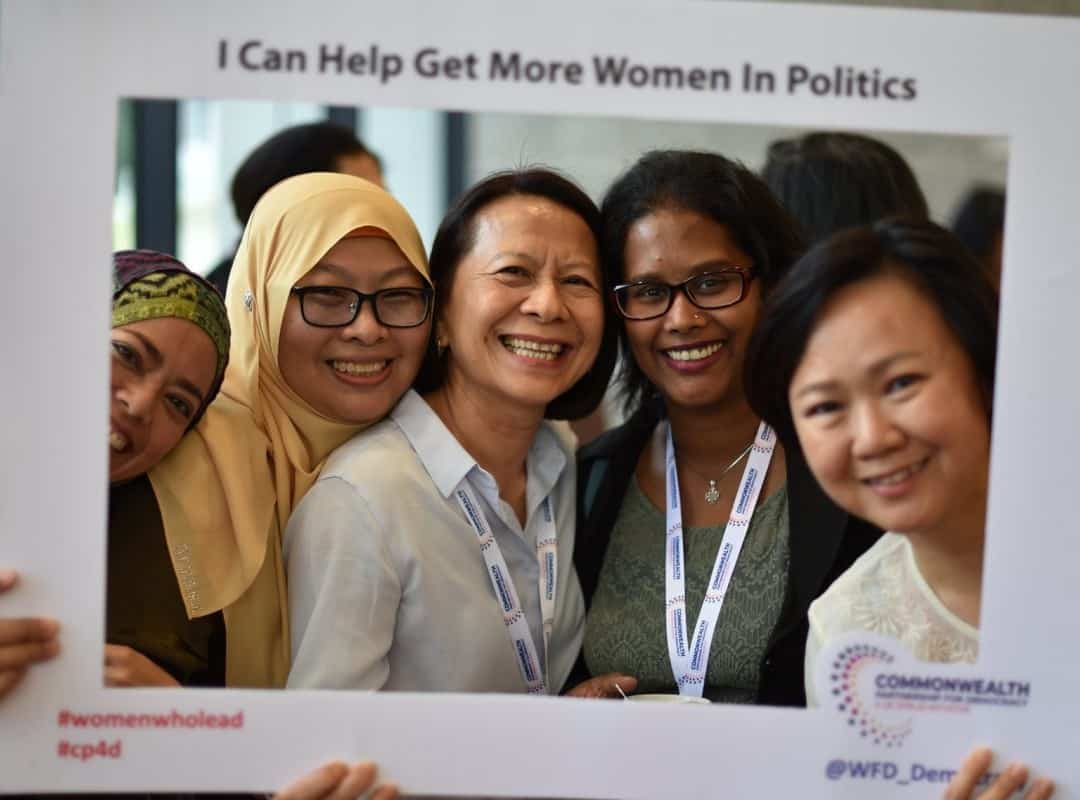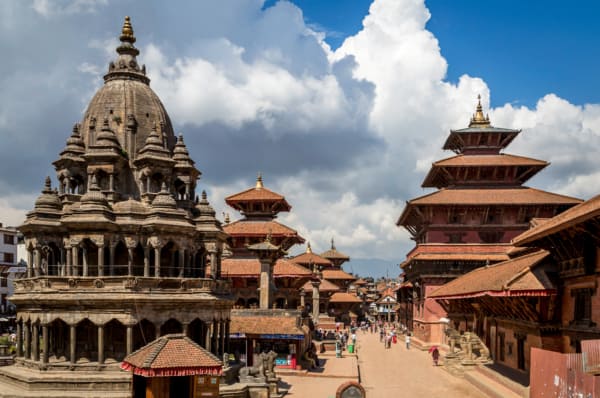This blog has been adapted for DLP from ‘Five ways policymakers and political parties can nurture women leaders‘ first published via the Westminster Foundation for Democracy on 29 March 2021.
Women’s political leadership is important for ensuring that women’s perspectives and experiences are included in political decision-making and recent research has demonstrated that women’s leadership has a positive impact on democracy. Whilst it is great that over the past 25 years the overall percentage of women in parliaments has more than doubled, women still make up less than a quarter of representatives in legislatures worldwide.
Previous research from the Developmental Leadership Program on ‘Being the First’ has demonstrated that education, professional experience and networks can prepare women to become leaders, and that it is important to understand how these resources are utilised by women on their pathways into political leadership.
New research sheds light on women’s motivations for getting into formal politics. The Westminster Foundation for Democracy interviewed 25 women political leaders in 15 countries to better understand what supports women’s routes into political leadership and how they prepare for these roles. These interviews also strengthen our understanding of what enables women to prepare to build on their motivations for political leadership.
Overall, we found no singular motivation for women’s political leadership; it is shaped by a combination of exposure to political issues and experiences. Whether they were motivated by anti-racist campaigning or wanting to protect the world from a nuclear war, in almost half the interviews women leaders emphasised that a desire to improve the world around them was a key driver for their political leadership.
“The reason I went into politics was because I wanted to help improve people’s lives. I care deeply about wanting to improve the lives of people who need it most, and I care deeply about eradicating poverty.”
Delyth Jewell MS, Wales
However, the interviews uncovered three key obstacles to women pursuing their political ambitions: First, pervasive violence against women in politics. Recent reports show an upward trend of reported violations against parliamentarians with women suffering disproportionately; Second:, financial barriers, which are particularly likely to affect women from socio-economically disadvantaged backgrounds; and third, attitudes towards women’s leadership due to gendered norms related to caring and domestic roles, and the practical challenges of managing multiple responsibilities.
In light of these findings, policymakers need to adopt a two-pronged approach to support women leaders to act on their motivations and prepare for political life. Firstly, they need to provide opportunities for skill development and resources. Secondly, they need to tackle the barriers that might hinder women’s ability to use those skills and resources.
Given the common threads among the perspectives shared in these interviews, we put forward a number of recommendations for effectively supporting women’s entry into political leadership.
1. Political apprenticeships
All interviewees considered that political apprenticeships were vital in developing their skills for leadership, including communication and interpersonal skills as well as policy-related knowledge, and in broadening their understanding of the realities of political life. For others, working within a political party demonstrated their commitment to the cause and enabled them to build up organisational resources and networks that supported their bid for political office.
Policymakers should invest in opportunities for paid work experience for women interested in political leadership, particularly prioritising supporting women most under-represented in leadership positions and those who do not have existing access to networks that connect them with these opportunities. Ensuring that these opportunities have flexibility embedded in them would allow those with multiple responsibilities to benefit from them.
2. Targeted leadership development
Political skills were also strengthened as part of formal political leadership development programmes, such as the Jo Cox Women in Leadership programme. A fifth of interviewees also identified student politics and activism as having developed their leadership by building their experience of creating policies and mobilising for collective action.
Political parties should invest in ongoing and embedded leadership development programmes, which support the growth of women’s political skills including communication and interpersonal skills as well as policy-related knowledge. These programmes can also encourage consideration of women’s political purpose and build networks and resources that women will need to successfully become candidates for election.
“You’ve got to really know yourself, really work out whether this is what you want to do and if you’ve got the stomach for it.”
Rushanara Ali MP, United Kingdom
3. Family preparation and inclusion
Family attitudes and support – both practical and emotional – were an important feature in enabling women to prepare for political leadership. Women referred to experience and skills that family had supported them to develop, and to the confidence that their families had given them through their belief in their ability to become a political leader. In addition, the necessity of practical support was consistently noted.
“You have got to have a supportive partner no matter what your gender or sexuality, they’ve got to be supportive of what you’re doing, and they’ve got to be equally willing to sacrifice quite a bit.”
Nickie Aiken MP, United Kingdom
The development of preparation courses and networks to support the family members of aspiring political leaders could provide additional preparation, encouragement and resources needed that would assist women to act on their impetus for political leadership.
4. Sponsorship and mentorship
Sponsorship and mentoring prepared women by highlighting the requirements of political roles and supported women to build up networks to support their candidacies. Many women mentioned having been asked more than once to stand for office, and that having multiple sponsors provided women with the certainty that their leadership was needed and supported. Ongoing mentorship was critical to preparing for candidate selection and campaigns and reduced the likelihood of women dropping out at this point.
Therefore, long-term sponsorship programmes are needed to de-mystify the political process and to address fears and concerns that motivated women may have. Mentorship should also recognise that support and skill development needs to adapt to the different stages on the pathway to political leadership.
5. Targeted financial support and funding
Governments and political parties should continue to reduce the cost of campaigning, but there also needs to be targeted and individual support designed to reach women who have the desire to enter leadership roles but face financial barriers to acting on this motivation. This financing needs to address the additional expenses incurred as a result of candidates’ other responsibilities, such as money to help pay for additional childcare that would allow them to invest time in their political work.
These recommendations are not all-inclusive, and the need for wider systemic change is essential. These reforms are urgent in order to break down barriers, fully address violence against women in politics and gendered norms that influence women’s responsibilities and limit their ability to participate in political life.









